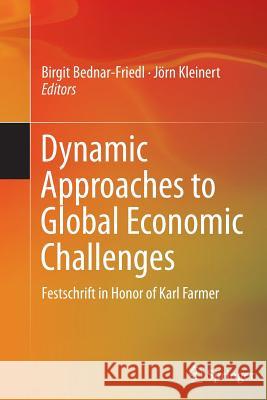Dynamic Approaches to Global Economic Challenges: Festschrift in Honor of Karl Farmer » książka
topmenu
Dynamic Approaches to Global Economic Challenges: Festschrift in Honor of Karl Farmer
ISBN-13: 9783319366142 / Angielski / Miękka / 2016 / 190 str.
Dynamic Approaches to Global Economic Challenges: Festschrift in Honor of Karl Farmer
ISBN-13: 9783319366142 / Angielski / Miękka / 2016 / 190 str.
cena 403,47
(netto: 384,26 VAT: 5%)
Najniższa cena z 30 dni: 385,52
(netto: 384,26 VAT: 5%)
Najniższa cena z 30 dni: 385,52
Termin realizacji zamówienia:
ok. 22 dni roboczych
Bez gwarancji dostawy przed świętami
ok. 22 dni roboczych
Bez gwarancji dostawy przed świętami
Darmowa dostawa!
Kategorie:
Kategorie BISAC:
Wydawca:
Springer
Język:
Angielski
ISBN-13:
9783319366142
Rok wydania:
2016
Wydanie:
Softcover Repri
Ilość stron:
190
Waga:
0.28 kg
Wymiary:
23.39 x 15.6 x 1.07
Oprawa:
Miękka
Wolumenów:
01
Dodatkowe informacje:
Wydanie ilustrowane











